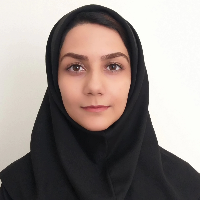Identifying the effect of physical components on visual perception in urban areas (Case study: the path between the Quran Gate and Ali Ibn Hamza Bridge in Shiraz)
Hafez Street in Shiraz, as the axis connecting the Quran Gate to the Isfahan Gate, has lost its visual coherence due to the interventions of recent decades. Therefore, its place in the mental image and perceptual structure of citizens needs to be examined. The purpose of this study is to identify the effect of each of the physical components affecting the visual perception of citizens and to examine the relationship between them. The research method is "survey and correlation" and the required data have been collected through field studies such as photography, mapping and taking notes, as well as questionnaires and documentary studies. The sample size was calculated using the Cochran's formula and the available sampling method was used to complete the questionnaire. Multivariate regression test was used to analyze the data. The results indicate that the "readability" component has the greatest impact on citizens' visual perception, and in the next priorities are the "clarity" and "human scale" components. On the other hand, the "diversity in the environment" has had the least effect on the visual perception of this street. Finally, some strategies were proposed to improve the visual perception of observers in order to improve the performance of existing urban spaces in addition to creating stronger mental images of the city.
-
Ranking the Semantic-Identity Challenges of Urban Landscape in the Urban Planning System of Iran
, Mahmoud Ghalehnoee, Armin Bahramian *, Mahmoud Mohammadi
Journal of Iranian Architecture and Urbanism, -
Revitalizing an Urban Void Based on Participatory Planning with Tactical Urbanism Approach (Case Study: Sobhani Square, Shiraz)
Mozhgan Ansari *, , Mahshid Lotfi, Nazafarin Negahdari, Majid Delfi, Raziyeh Mozaffari, Pooya Aminlari, Fatemeh Shahvaran, Azarmidokht Pouravaz, Ali Ghahramani, Alireza Gholami, Moozhan Ansari, Sarah Ghamar, Farzad Farazian Shirazi, Ailin Akbari Soltanie, Mansour Samiei, Shiva Hakimian
MANZAR,



